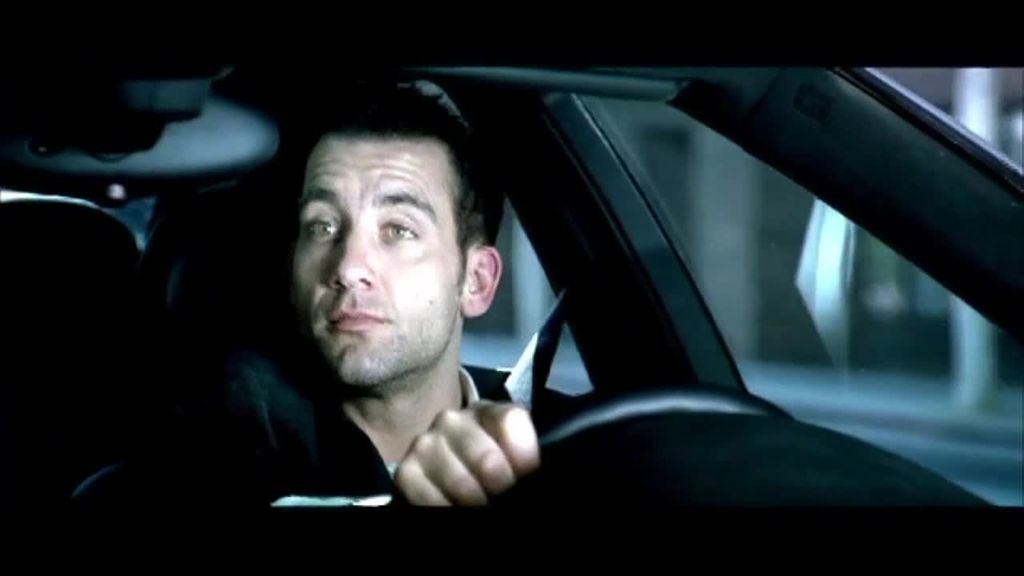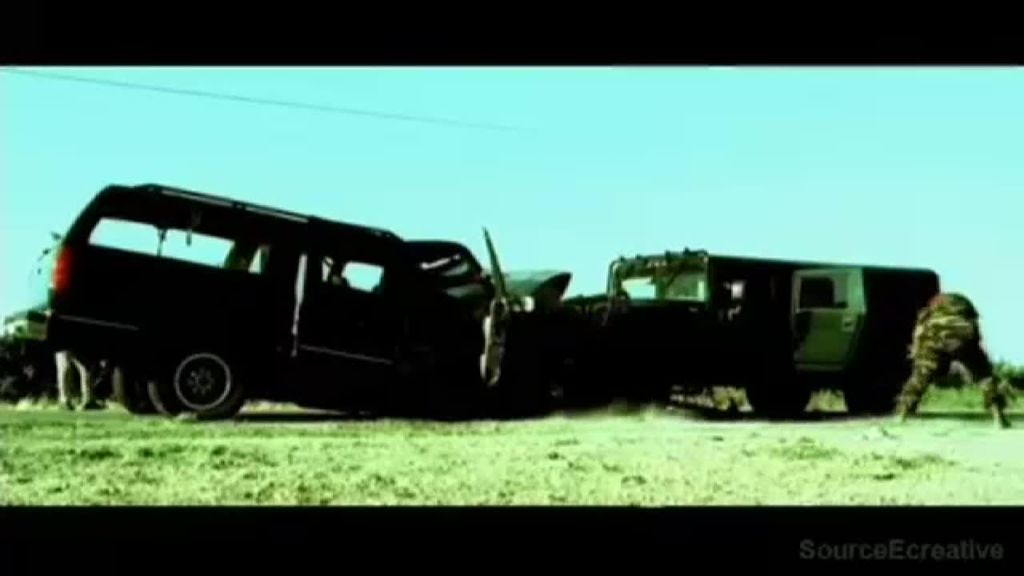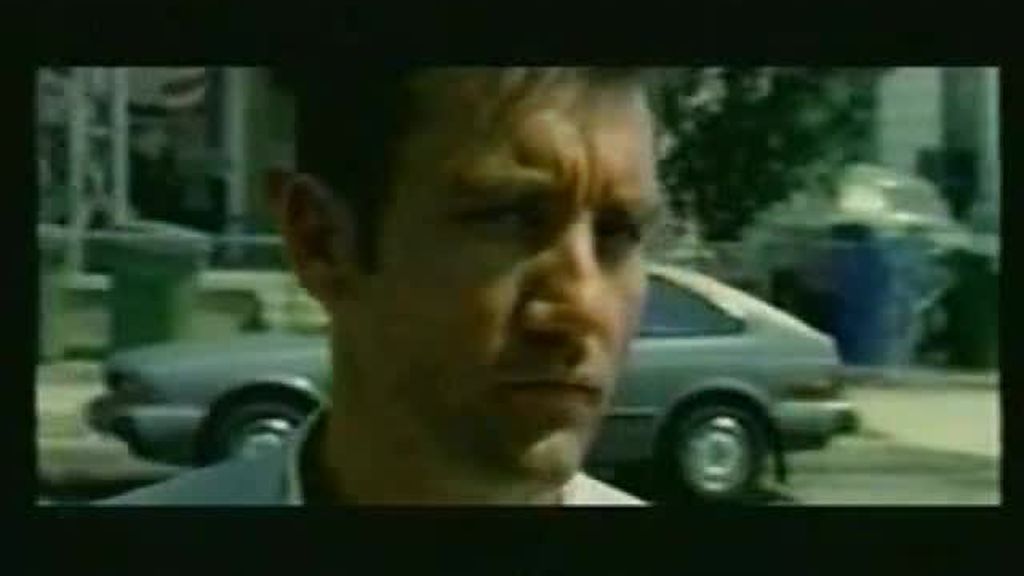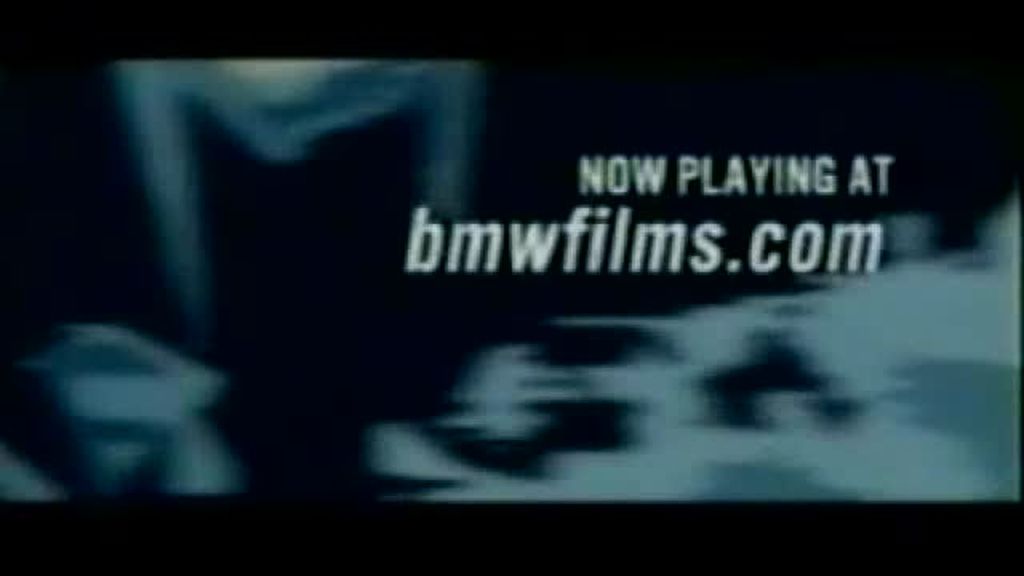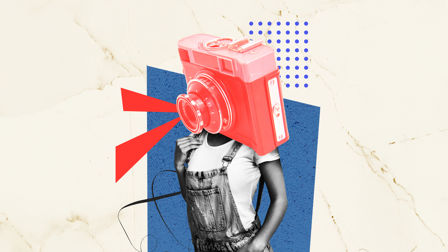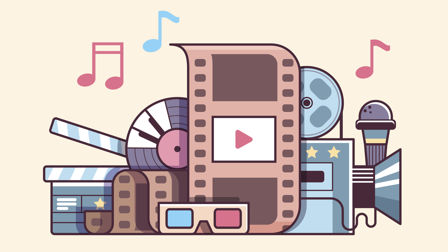)
Susan Credle: The business end of success
Titanium jury president Susan Credle talks to Tim Cumming about spotting what’s next for the industry, the importance of the business's bottom line to the top line of creativity, and whether all those awards really matter?
Very strong, very light, very expensive, and incorruptible, like gold.
That’s your go-to definition of titanium, one of those metals that’s all over your smart phone. At Cannes Lions, the Titanium category was launched by Dan Wieden in 2003, in order to honour The Hire, Fallon’s short film series for BMW starring Clive Owen, that year’s hard-to-categorise best-of-the-best, or rather, in Dan Wieden’s words, the piece of work that “caused the industry to stop in its tracks and reconsider the way forward”.
With each of the pieces I’ve asked the jury to think about why is this a signal for the industry. What are we asking the industry to pay attention to, or to do?
That latter definition is still one that this year’s Titanium president, FCB’s global CCO Susan Credle, feels still holds good. She’s served on the Titanium jury with Wieden himself, and was on jury service in 2019, when it was awarded to the audacious, innovative Whopper Detour. Of which more in a moment.
BMW – Star
BMW – Ticker (Full Length)
BMW – Hostage
BMW – Ambush
BMW – The Follow
Above: Fallon Minneapolis's work for BMW's The Hire - along with Dan Wieden - ushered in the Titanium Lion in 2003.
“I don’t know where we’ll end up this year,” says Credle. “I don’t see a common theme right now on the shortlist. With each of the pieces I’ve asked the jury to think about why is this a signal for the industry. What are we asking the industry to pay attention to, or to do? It’s a tough jury. All of the work I would’ve been proud for our agency to have done, and it’s just separating out the best of the best.”
If [work is] not living in the world and doing stuff for business, it becomes far less important.
Over the years, Titanium juries have focused on very different ideas of ‘best’. Sometimes it’s about the future of technology, sometimes it’s been platform based, other years it’s about thinking outside the box. As such, the Titanium is an industry beacon, lighting the way ahead, and, more precisely says Credle, illuminating what we need to know about today to be relevant tomorrow.
“Two years ago, the major message we wanted to send was that if we don’t do our best work on our biggest brands, and the world doesn’t experience them, we are going to lose the conversation on the value of creativity,” she says. Which means the creative imperative has to cross the bottom line, of making your client a healthy turnover. “If it’s not living in the world and doing stuff for business, it becomes far less important,” she adds. That was far from the case when she entered the industry. “Then, the most creative work wasn’t about ROI, it was about inspiring the industry to push the work up.”
To the point where she recalls Jeff Goodby remarking one year that “the only people who see the best work are the ones who walk up and down the Croisette once a year”. Such inward-looking exclusivity, she says, does not do the creative industries any favours. The best work has to be for the biggest clients.
Where [Whopper Detour] went from shortlist to Titanium to Grand Prix is because it wasn’t just a creative idea, it was an idea that helped to solve a business problem for a client.
“Whopper Detour would have made the shortlist just as a fun idea, but where I think it went from shortlist to Titanium to Grand Prix is because it wasn’t just a creative idea, it was an idea that helped to solve a business problem for a client.” Which was, how the hell do you incentivise people to download your app and start ordering patties, pronto? Cue the Detour. “This creative idea got more downloads in a short amount of time than what they’d been working on for five years,” says Credle. And that was 2019’s Titanium tipping point. “It not only made the client money, but putting creativity on top of a business need means we’re valuable again – that was the message.”
Credits
powered by
- Agency FCB/New York
- Production Company O Positive
- Director Jonathan Klein
-
-
Unlock full credits and more with a Source + shots membership.
Credits
powered by
- Agency FCB/New York
- Production Company O Positive
- Director Jonathan Klein
- Chief Creative Officer Ari Halper
- Group Creative Director Gabriel Schmitt
- Senior Copywriter Laszlo Szloboda
- Associate Creative Director/Art DIrector Alex Sprouse
- Associate Creative Director Akos Papp
- Director of Integrated Production Adam Isidore
- Producer Henna Kathiya
- DP Htat Lin Htut
- Executive Producer Ralph Laucella
- Executive Producer Gina Pagano
- Editor Nick Divers
- Assistant Editor Kenneth Munoz
- Executive Producer Mary Ruth Tomasiewicz
- Executive Producer James Dean Wells
- Producer Joshua Green
- Producer Jason Reda
- Sound Designer Conrad Sanguineti
- Post Producer Margarita Mutuc
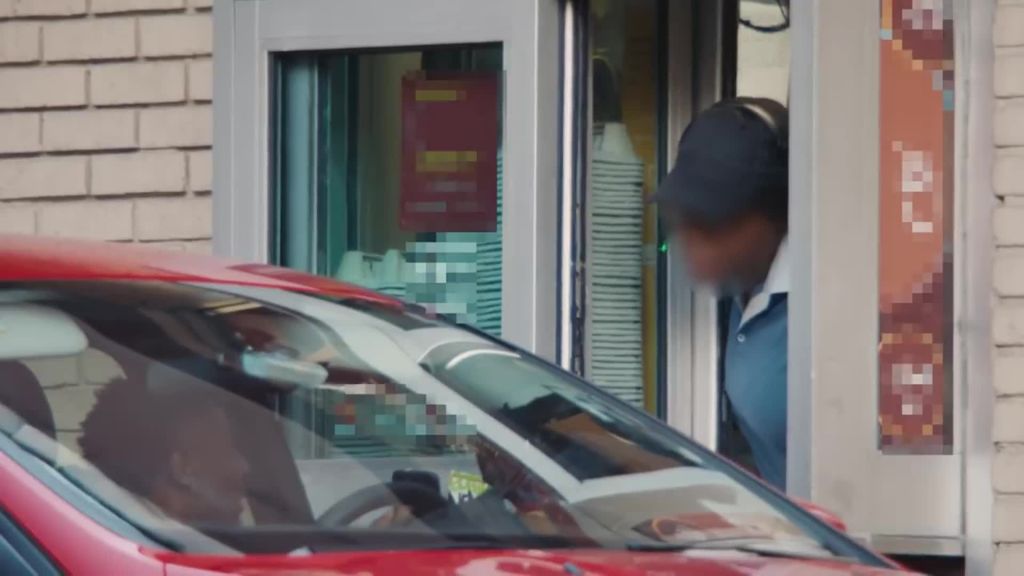
Credits
powered by
- Agency FCB/New York
- Production Company O Positive
- Director Jonathan Klein
- Chief Creative Officer Ari Halper
- Group Creative Director Gabriel Schmitt
- Senior Copywriter Laszlo Szloboda
- Associate Creative Director/Art DIrector Alex Sprouse
- Associate Creative Director Akos Papp
- Director of Integrated Production Adam Isidore
- Producer Henna Kathiya
- DP Htat Lin Htut
- Executive Producer Ralph Laucella
- Executive Producer Gina Pagano
- Editor Nick Divers
- Assistant Editor Kenneth Munoz
- Executive Producer Mary Ruth Tomasiewicz
- Executive Producer James Dean Wells
- Producer Joshua Green
- Producer Jason Reda
- Sound Designer Conrad Sanguineti
- Post Producer Margarita Mutuc
Above: Whopper Detour, the 2019 Titanium Grand Prix.
For similar reasons, she point to 2019’s Brand Experience & Activation Grand Prix-winning Super Bowl ad from McCann New York for Microsoft’s Adaptive Controller for Xbox. “It wasn’t something small, like ‘this is for this group of people’; they did it BIG. They put it on the Super Bowl. And that was the message I wanted to send; that you’ve got to do great work on big stuff.”
When crises happen, the brands that step in and step up come out of the crisis way ahead.
The definition of Titanum changes with each new year and each new president. What big thinking does she think will define it in the years of Covid? “Covid forced us to rethink how we solve problems,” says Credle. “We did things we wouldn’t have done otherwise. I’ve heard many clients, and in fact our agency has said, we’re doing things we thought would take five years to get to, in five months. So, there is a conversation to be had. When crises happen, the brands that step in and step up come out of the crisis way ahead, while the brands that go quiet, lose share. That might be the story; how, in crisis, the brands that did something gained market share, gained brand love, brand affinity, and moved business.”
We should be working for the industry, not our agency. If we lift up our industry instead of pulling each other down, we’ll be a much stronger force in the world.
While she admits to a “love/hate relationship” with awards shows - “sometimes we’re so navel gazing that we aren’t doing the right things by the industry” - she also believes that “the best part is the networking the jury gets to experience. That makes us a tighter industry. I always say we should be working for the industry, not our agency. If we lift up our industry instead of pulling each other down, we’ll be a much stronger force in the world. What we do on our best days is pretty important. We push progress, we push the economy, we hopefully give people more opportunity to have better lives, so it’s not just about selling stuff.” And it’s not just about winning awards, although winning will definitely smooth your way. “They give us the attention that helps our business. And when you’re younger, it keeps you feisty. I can remember when I stayed later at night to do a better piece of work if I thought I had a chance of being awarded.”
Credits
powered by
- Agency McCann/New York
- Production Company Hungry Man
- Director Bryan Buckley
-
-
Unlock full credits and more with a Source + shots membership.
Credits
powered by
- Agency McCann/New York
- Production Company Hungry Man
- Director Bryan Buckley
- Associate Creative Director Martha West
- Associate Creative Director William Montgomery
- Chief Creative Officer Co Sean Bryan
- Executive Creative Director Shayne Millington
- Executive Creative Director David Banta
- HP Carolyn Johnson
- Producer Rebecca Magner
- Sr Art Director Julie Koong
- Sr Copywriter David Cappolino
- Executive Producer Caleb Dewart
- Executive Producer Kevin Byrne
- Executive Producer/Director of Sales Dan Duffy
- Executive Producer Mino Jarjoura
- Producer Matt Lefebvre
- DP Scott Henriksen
- Editing Company Rock Paper Scissors
- Editor Damion Clayton
- Flame Artist Edward Reina
- Executive Producer Eve Kornblum
- Post Producer Lisa Barnable
- Flame Producer Barbara Kontarovich
- Music Company JSM
- Chief Creative Officer/Co-Composer Joel Simon
- Composer Jason Krebs
- Executive Producer Jeff Fiorello
- Audio Post Sonic Union
- Sound Designer/Audio Engineer Michael Marinelli
- Colorist Sofie Borup
- Assistant Editor Alexandra Debricon
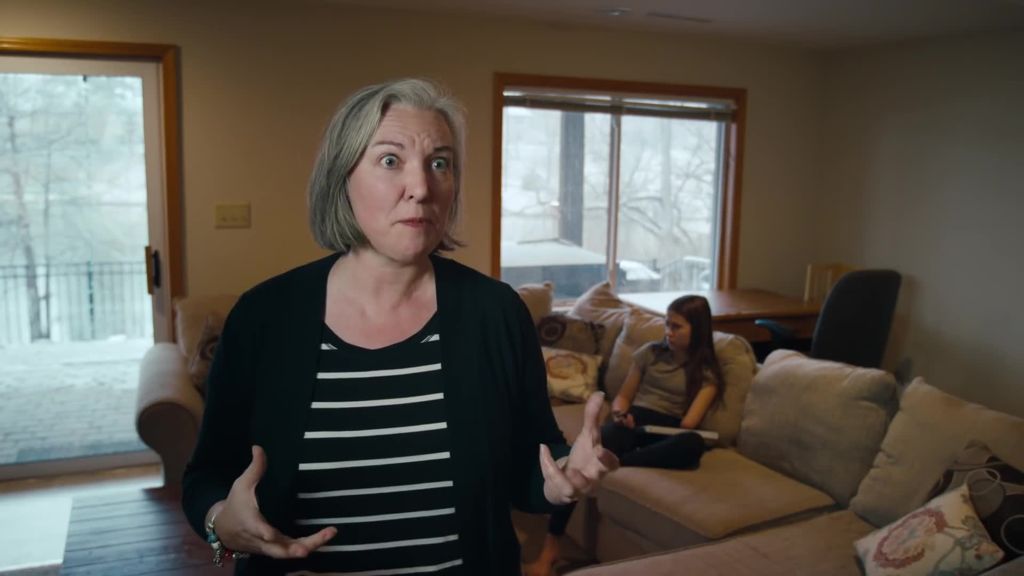
Credits
powered by
- Agency McCann/New York
- Production Company Hungry Man
- Director Bryan Buckley
- Associate Creative Director Martha West
- Associate Creative Director William Montgomery
- Chief Creative Officer Co Sean Bryan
- Executive Creative Director Shayne Millington
- Executive Creative Director David Banta
- HP Carolyn Johnson
- Producer Rebecca Magner
- Sr Art Director Julie Koong
- Sr Copywriter David Cappolino
- Executive Producer Caleb Dewart
- Executive Producer Kevin Byrne
- Executive Producer/Director of Sales Dan Duffy
- Executive Producer Mino Jarjoura
- Producer Matt Lefebvre
- DP Scott Henriksen
- Editing Company Rock Paper Scissors
- Editor Damion Clayton
- Flame Artist Edward Reina
- Executive Producer Eve Kornblum
- Post Producer Lisa Barnable
- Flame Producer Barbara Kontarovich
- Music Company JSM
- Chief Creative Officer/Co-Composer Joel Simon
- Composer Jason Krebs
- Executive Producer Jeff Fiorello
- Audio Post Sonic Union
- Sound Designer/Audio Engineer Michael Marinelli
- Colorist Sofie Borup
- Assistant Editor Alexandra Debricon
Above: McCann New York's campaign for its adaptive controller.
Credle’s describes her own entry into the business, and journey to becoming global creative head at FCB, as a circuitous route. “I have to say it took me a long time to get here,” she laughs. “It was a slow journey. I took all the back roads.” At first she wanted to go into acting but, as a wise old impresario one remarked, ‘if acting isn’t your oxygen, don’t do it – you’ll asphyxiate’. So, she joined an advertising course instead. “In a weird way, a brand is like a character in a piece of theatre,” she says, “you have to understand that role, how it plays, how it shows up, what it would talk about.”
Some women heard I’d been offered [the role] and they said, please take it, for the industry.
She moved to New York, rocked up at BBDO, the agency she had seen on the covers of all the trade magazines, and said, “I’d do anything that allows me to walk in that door every day”. And so she did, starting out as bathroom break receptionist, on $11.5K a year. “I did that for six months, and learnt about all the departments, who did what and how it worked, and ended up at an agency where the creative department was the heart of the organisation. So, I grew up with creativity being job one.”

Above: Cannes' coveted Titanium Lion trophy.
Credle stayed at BBDO until “there was no place left for me to move” before being approached to come in as CCO at Leo Burnett in Chicago. “At first I said no,” she says, “until some women heard I’d been offered it and they said, please take it, for the industry, [that] it might make people start to think that more women can do this role. And I’m so glad I did it; it puts you in a different stratosphere.” Six years later, FCB poached her back to New York as its global creative head. “I wanted to be closer to the very, very top, so I said yes, and it’s been fun, really exciting.”
If people walk out saying, ‘why did they give them that?’, then we’ve done a terrible job. And I’ve done a bad job as a lead.
As such, she’s been an industry trail-blazer, especially for women in the C-Suite, and now, as Titanium president, she’s determined to shed that light across the jury and across the best work on their shortlist. “My job is to monitor the room and to ensure people aren’t being shut down, and that no one’s dominating, and to hear the room, see where they want to go. I want every juror to walk out thinking our list is amazing. If people walk out saying, ‘why did they give them that?’, then we’ve done a terrible job. And I’ve done a bad job as a lead. The goal is that every juror feels that they can stand behind the honourees. With gusto. The decisions we make, we make together, so that we can do right by the industry. And we need to look for the stories that can be told behind the work, so the work actually becomes a creative reminder of what you need to bring as you move forward.”
We need to make sure that awards are just one way we value our creative product, but they’re not the only way.
Not that awards are the be-all and end-all, she adds. “The best work in my career never got a single award,” she says, laughing. “So, I always say awards are just one way to judge how you’re doing. Most of the stuff I won awards for didn’t last very long in the world, and the stuff that never won awards is out there making everyone money. It’s one way to think about your work being great, but there are other ways. What new business did it create, what organic growth did it create within your company? What talent did it attract? We need to make sure that awards are just one way we value our creative product, but they’re not the only way.”
)


